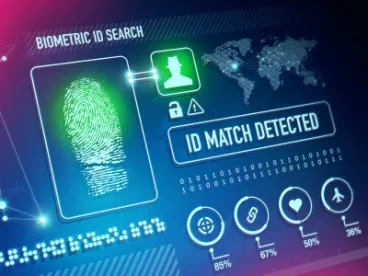As a result of numerous security issues in this day and age, employers are looking into new technological ways to counteract security risks. One such way is the use of various types of employee biometric data to confirm the identity of an individual before giving him access to the physical or intellectual property of the employer. The obvious advantages to employers are that this data is unique to the known/approved individual and may not be duplicated. The mandatory use of such data, however, creates another, non-security-related legal issue for employers.
Employers have begun to use various types of biometric data, such as fingerprints and voice or eye scans, to confirm the identity of an individual attempting to gain access to their property. While this may be an efficient and secure procedure for the employer, some employees have objected to these procedures on religious grounds. Frequently, these employees purport to be Evangelical Christians and claim that participating in these types of security practices will brand them with Mark of the Beast (Devil) as a follower of the Antichrist, barring them from access to Heaven.
When confronted with religious objections to such evolving workplace practices, employers must reassess their position before addressing the employee. Federal and state law, Title VII, and the Pennsylvania Human Relations Act, afford employees protection for sincerely-held beliefs of a religious nature. Such employee beliefs must be addressed by employers, even if those beliefs are solely of a personal nature; the employee is not a member of any formal, recognized, or organized religion; the belief itself is not held by any religious organization; or, the employee’s avowed religion disagrees with the particular belief. Nor may employers question the correctness or plausibility of the employee’s religious understanding or show a predisposition towards conventional religions. Employers may look at the sincerity of the employee’s belief if that belief appears to emerge conveniently with a change in the employee’s terms and conditions of employment, or the employee otherwise engages in conduct inconsistent with that particular asserted belief.
Absent such circumstances, an employer, when confronted with such a belief, must attempt to find a reasonable accommodation for that belief which does not create an undue hardship for the employer. This may require the employer to resort to older means of accomplishing the same result – such as use of traditional paper and pencil measures or personal interaction. An employer’s failure to attempt to reasonably accommodate an employee’s religious objection with the requirements of the job runs the risk of being found to have discriminated against the employee based on his religion. Such sign of the Beast cases have resulted in sizable judgments against employers in litigation.
Similarly, Pennsylvania Courts, when interpreting Pennsylvania employment statutes, do so in a coextensive manner with federal court decisions arising out of similar federal employment laws, as these federal and state statutes deal with the same subject matter and are grounded on similar legislative goals. This fact is shown by a decision of the Pennsylvania Commonwealth Court, arising under the Pennsylvania Unemployment Compensation Act, which also involved the Sign of the Beast. In Kaite v. Unemployment Compensation Board Review, the Court reversed the Pennsylvania Unemployment Compensation Board of Review and held that an employee’s refusal, because of her religious beliefs, to submit to fingerprinting, as required by the CHR Protective Service Law, but willingness to do anything else asked of her, did not constitute willful misconduct and thus she was entitled unemployment compensation benefits. In light of these holdings, Pennsylvania employers embracing new technology must do so also with an eye on the New Testament.



 />i
/>i
